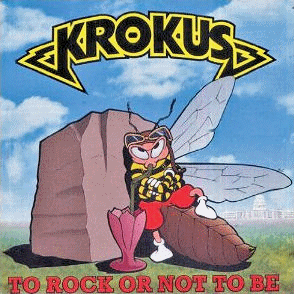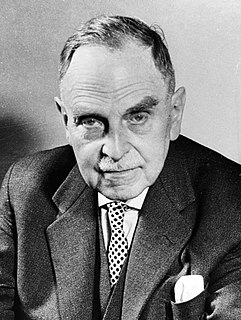Related Research Articles

Rolf Martin Zinkernagel is Professor of Experimental Immunology at the University of Zurich. He was awarded the Nobel Prize in Physiology or Medicine in 1996 for the discovery of how the immune system recognizes virus-infected cells.

Walter Jakob Gehring was a Swiss developmental biologist who was a professor at the Biozentrum Basel of the University of Basel, Switzerland. He obtained his PhD at the University of Zurich in 1965 and after two years as a research assistant of Ernst Hadorn he joined Alan Garen's group at Yale University in New Haven as a postdoctoral fellow.
The Klung Wilhelmy Science Award is an annual German award in the field of science, alternating annually between the categories of chemistry and physics. It is bestowed upon outstanding younger German scientists under the age of 40.
The Robert Koch Medal and Award are two prizes awarded annually by the German Robert Koch Foundation for excellence in the biomedical sciences. These awards grew out of early attempts by German physician Robert Koch to generate funding to support his research into the cause and cure for tuberculosis. Koch discovered the bacteria responsible for the dreaded disease and rapidly acquired international support, including 500,000 gold marks from the Scottish-American philanthropist Andrew Carnegie.
Oskar Naegeli, was a Swiss chess player and dermatologist. He represented Switzerland at the Chess Olympiads in 1927, 1928, 1931 and 1935, as well as at the unofficial Olympiad in 1936 at Munich.

To Rock or Not to Be is the twelfth studio album by the Swiss hard rock band Krokus, released in 1995. The album stayed seven weeks in the top ten of the Swiss charts, peaking at number 5.
The Paul Ehrlich and Ludwig Darmstaedter Prize is an annual award bestowed by the Paul Ehrlich Foundation since 1952 for investigations in medicine. It carries a prize money of 120,000 Euro. The prize awarding ceremony is traditionally held on March 14, the birthday of Nobel laureate Paul Ehrlich, in the St. Paul's Church, Frankfurt am Main.
Jules Angst is a Swiss academic who is Emeritus Professor of Psychiatry at Zurich University in Zurich, Switzerland, and Honorary Doctor of Heidelberg University in Heidelberg, Germany.

Dorothee Elmiger is a Swiss writer. She presently lives in Switzerland. Elmiger is considered one of the most promising young Swiss writers, especially after winning the second Ingeborg Bachmann Prize, the Kelag Prize, in 2010.
The Stiftung Marktwirtschaft is a liberal German economic think tank which counts several leading liberal German economists as members and contributors.
Prof. Dr. Otto Naegeli, was a Swiss hematologist. He was the brother of Oskar Naegeli.
Kurt-Tucholsky-Preis is a literary prize of Germany. The prize amount is currently €5,000.

Silvia Arber is a Swiss neurobiologist. She teaches and researches at both the Biozentrum of the University of Basel and the Friedrich Miescher Institute for Biomedical Research in Basel Switzerland.

The Otto Hahn Prize is awarded biennially jointly by the Society of German Chemists, the German Physical Society and the city of Frankfurt am Main for outstanding achievement in the field of chemistry, physics or applied engineering science. It was established in 2005 by the merger of the previous Otto Hahn Prize for Chemistry and Physics and the Otto Hahn Prize of the City of Frankfurt am Main. The award is presented in the St. Paul's Church, Frankfurt am Main.
Lelio Orci was an Italian scientist in the field of endocrinology and diabetes and emeritus professor in the Department of Morphology at the University of Geneva Medical School.
Albert Ernst Renold was a Swiss physician and clinical biochemist noted for his extensive research on diabetes. In 1986 he was awarded the King Faisal International Prize in Medicine for contributions to the understanding of diabetes.

The German Society for Photography is a German photography organisation, based in Cologne. It is concerned with the application of photography in art, science, education, journalism, economics and politics in cultural contexts.
The Max Frisch Prize of the City of Zürich, created in 1996, is usually awarded every four years to writers in German-speaking countries. The prize is named after the Swiss writer Max Frisch (1911–1991). The literary award is endowed with a prize sum of 50,000 Swiss francs. In 2018, an additional sponsorship award endowed with 10,000 Swiss francs was introduced in order to be able to support writers of the younger generation as well. The award honors authors whose work addresses fundamental issues of democratic society in an artistically uncompromising manner. The Max Frisch Foundation at ETH Zürich is responsible for judging and determining the winners. The City of Zürich is financing the award and its hosting.

Kitty Ponse was a Swiss zoologist and endocrinologist. She was a professor at the University of Geneva and received the Swiss Otto Naegeli Prize in 1961.
Nicolas H. Thomä is a German researcher, senior group leader at the Friedrich Miescher Institute for Biomedical Research in Basel, Switzerland. He is a biochemist and structural biologist and a leading researcher in the fields of ubiquitin ligase biology and DNA repair.
References
- 1 2 Official Website
- ↑ "Preistraeger" [prizewinners]. Otto Naegeli Preis (in German). Retrieved 21 March 2019.
- ↑ "Nicolas Thomä receives the Otto Naegeli Prize 2022". www.fmi.ch.